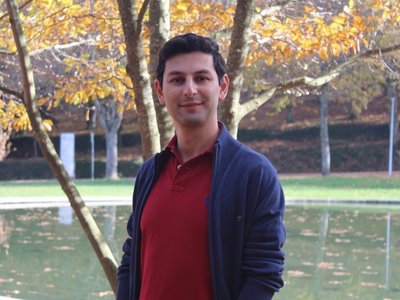

The science world is exciting and motivating for me. You set yourself new challenges, address them, overcome them, and learn and grow from your own experience. This is one of the main reasons I chose to work in academia. However, I believe that research should be co-designed and co-implemented with and for society in order to better tackle societal problems and find solutions that are relevant in a real-world context. Transdisciplinarity is an approach that involves the collaboration of researchers from different disciplines together with societal actors to address global, regional, and local problems. My study at BOKU, Vienna was rewarding to explore the transdisciplinary research and learning approaches as well as gain knowledge and experience for its implementation. My doctoral research aimed to shed light on specific challenges and opportunities for the integration and application of transdisciplinary approaches in post-Soviet academic institutions, particularly in Armenia and Georgia, where universities still face challenges in the transition. My research was part of the APPEAR project Transdisciplinarity for Sustainable Tourism Development in the Caucasus Region (CaucaSusT) which aimed to enhance university-community cooperation in the Caucasus mountain region. After finishing my doctoral studies, I continued my career as a postdoctoral researcher at the Center for Transdisciplinary Development Studies at the University of Trás-os-Montes and Alto Douro, Portugal. My current research aims to develop an innovative framework for creating place-based territorial intelligence in low-density territories in Portugal. Low-density territories are left behind the global economic development and progress because of the aging population, out-migration, and lack of capacities for innovation. However, these areas often retain heritage sites, and natural and cultural landscapes as well as a favorable environment for developing alternative approaches to regional innovation opportunities. Together with my colleagues, we strive to empower local actors, communities, and institutions with contextualized knowledge and skills enabling low-density regions to cope with complex societal challenges and meet Sustainable Development Goals.
Studying in Austria had a very positive impact, on my personal and professional life. First of all, Austria gave me an opportunity to learn in a multidisciplinary and multicultural environment. This is particularly important when discussing different realities of society. Interaction with experts in the field of sustainability played a major role in my professional development. Above all, I see a personal transformation, which relates to my attitudes, way of thinking, and having a broad worldview.
I have established good networking and cooperation with various academics and civil society in the European countries and the Caucasus region; the positive outcomes of which continue to this day. Based on my doctoral thesis, a book chapter on the implementation of transdisciplinary case study approaches in Armenia and Georgia has recently been published in a Routledge book. To make our project outcomes accessible to a broader community, my colleague Tamara Mitrofanenko (BOKU) and I discuss some general results in i2insights. Furthermore, we continue to integrate transdisciplinary approaches into the research agenda of the Caucasus countries. For me, one of the most important achievements of the CaucaSusT project has been the increased trust in society toward academia in Armenia and Georgia, as demonstrated by our research results.
To other current and future OeAD scholarship holders I would like to give some tips from my experience:
- At an early stage of studying in Austria take part in scientific writing courses to improve your research capacities (e.g. literature review, scientific writing and publishing),
- Visit as many as possible cultural events including museums and concerts. This will help you to be integrated into local cultural life,
- Study hard to achieve your academic goals,
- Take part in conferences in order to develop your scientific network and improve your public speaking and presentation skills,
- In case of challenges do not hesitate to ask OeAD colleagues for help. They are always great and supportive: this is vital to focus on your study and make your academic journey real.
- Do not forget to enjoy and have fun!
Tigran Keryan (Dr.rer.soc.oec. MSc) is a postdoctoral researcher at the Centre for Transdisciplinary Development Studies at the University of Trás-os-Montes and Alto Douro, Portugal. He received his doctoral degree associated with the CaucaSusT project at the Doctoral School Transitions to Sustainability (T2S) at the BOKU University of Natural Resources and Life Sciences, Vienna, Austria. Previously he worked as a geography and environmental sciences schoolteacher in Armenia and was involved in different academic and development projects in the field of sustainable development.
